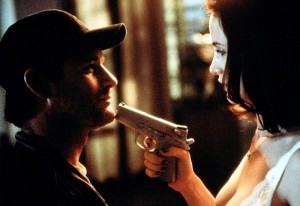Family Plots (a story)
I no longer know when I wrote this story, although it was obviously written before I wrote digitally, because the typescript I recently came across, which I’ve revised here only slightly, clearly came from a typewriter. (I suspect that most or all of it was written in Santa Barbara in the mid-1980s, although I may have started it much earlier.) A few of the details are autobiographical in origin (e.g., I grew up with three brothers, but certainly without a nanny, and the description of the grandparents’ mansion mostly corresponds to my own grandparents’ home in Florence, Alabama, owned and occupied today by a local friend), but most of them obviously aren’t.
I’ve hesitated about publishing much of my fiction on this site because the responses to my stories so far have been fairly minimal — a likely result of “niche marketing” that tends to associate this site almost exclusively with film (or, to a lesser extent, jazz and reviews of prose fiction) — but I’ve decided to repost this with links on Facebook and Twitter just to see if this changes anything. — J.R.
Family Plots
1.
The restaurant was so crowded that they had to assign all six of us to separate tables, with careful instructions to deliver five of the checks to Daddy-Pop after the meal, reconvene, and then go to see a Marx Brothers double feature down the street. Read more

